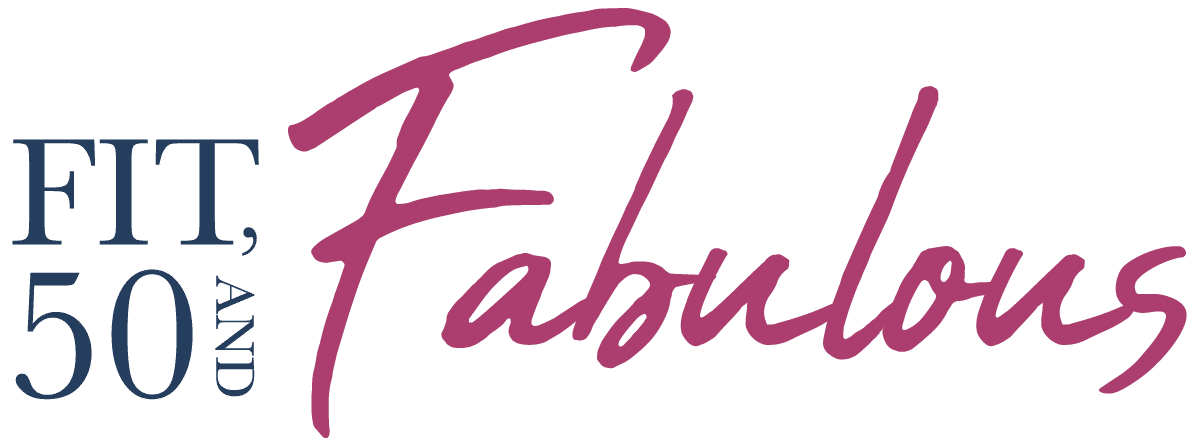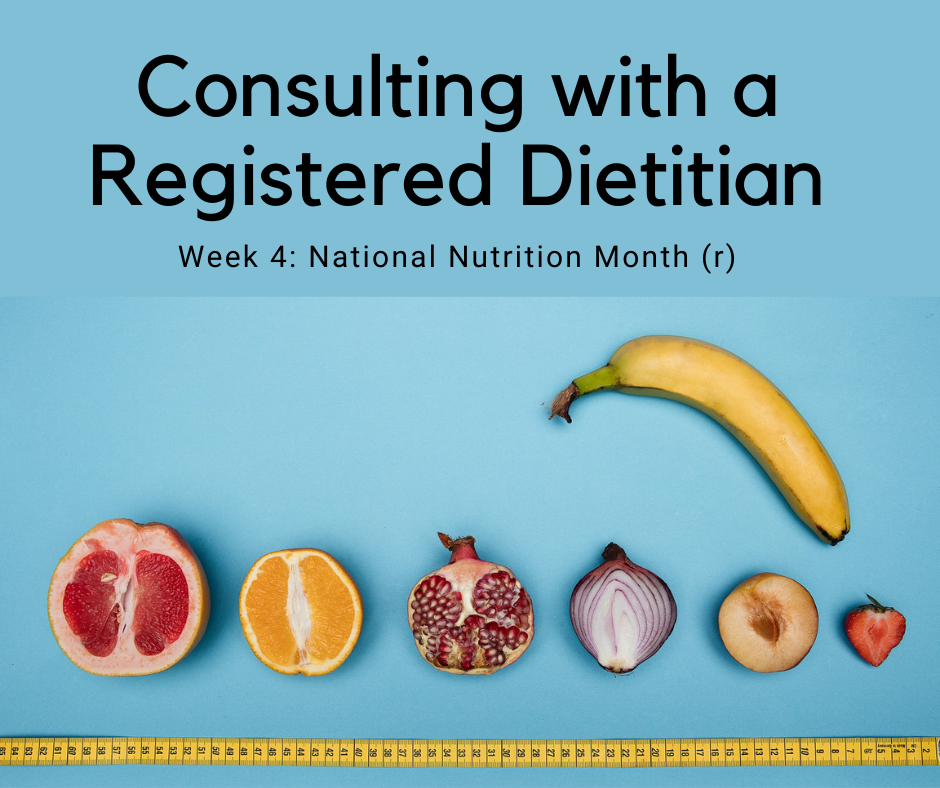There are two things I’m having trouble digesting (pardon the pun). First, it’s the last week in March. Secondly, it’s Week 4 week of National Nutrition Month®. Where did the time go?
In this final week of the month-long information campaign, the focus is on Consulting with Register Dietitian Nutritionist (RDN). Want to recap on the topics of the previous three weeks? Get a rundown on from my previous articles:
Let’s start learning more about what an RDN can do for your nutrition goals, as well as some alternatives.
Ask your doctor for a referral to an RDN or Nutrition Coach
Despite years of consistently high cholesterol, my doctor never suggested I consult with an RDN. However, he did offer to put me on a statin and handed me a copy of a well-worn copy of foods I should eat and avoid. Not the kind of expert advice I was looking for. Has this happened to you? If so and the idea of consulting with an RDN has popped up, you might be wondering….
What is an RDN?
An RDN are experts in the understanding the science of food and nutrition. Using this expertise, they translate how food and nutrition can work better for you, your body and your health goals.
Our bodies are complex biological machines. Numerous factors influence how our bodies digest, process and use the food we eat for energy and basic sustainment. We all have that one friend who can eat twice their weight in food yet never gain an ounce. Yet we do the same and our clothes immediately fit a little more snug. That’s the influence of our biological makeup at work.
If you’ve ever had an occasion to be hospitalized, you may have either been given a menu of foods you could chose at random, or your meals may have been chosen for you. The latter is an RDN at work, determining what foods are best given the ailment you’re being treated for.
How about a Nutrition Coach?
Fitness is a lifetime passion of mine. I’ve always been peripherally aware of what “good” and “bad” foods were in my diet. I was in my 50s when I made a concerted effort to lose weight. That’s when I really started to learn about how my food choices influence my health and fitness goals, and more importantly – why. The knowledge I’ve gained and how I applied it yielded a 20-pound weight loss.
I was energized by results. Not because of the weight loss but because of what I learned. That translated into a desire to learn more and be able to share that knowledge with others just like me. For that reason, I enrolled in Precision Nutrition Level 1 Nutrition Coaching program. My goal is to become a Nutrition Coach.
The difference between a Nutrition Coach and an RDN is this: Nutrition Coaches are trained to take a whole person approach when working with clients. That means addressing your entire biopsychosocial makeup. This incorporates biological, psychological, and social elements that might affect your response to nutrition coaching.
Think of achieving good health as a three-legged stool. An RDN can design a well-balanced nutrition program that supports your body’s biological needs. Knowing what to eat and how it affects our unique bodies is a great start. But they are unlikely to address the other two legs of the stool:
- Our psychological motivations (thoughts, feelings and perceptions, expectations and goals, worries, value and perspective)
- Our social factors (family, friends, co-workers, physical environment, our supporting tribe or community, and cultural and societal impacts).
Frankly, it’s a focus on the latter two legs of the stool that will provide the framework, process, structure and understanding needed to make the work the of an RDN successful.
If you’ve not been directed by a physician to specifically consult with an RDN, consider working with a certified Nutrition Coach instead. We cannot develop meal plans for you, we can help you work with what you already know and do and help you figure out why. We guide you towards ways that help you make healthier more nutritious food by working with you as a whole person.
After all, who doesn’t want to understand why they plowed through a bag of Hershey kisses or potato chips when they know it won’t help them reach their goal?
Receive personalized nutrition advice to meet your goals
Food is fuel and depending on your goals, you need different fuel in different mixtures and amounts. Just like Formula 1 race cars and diesel trucks need specific fuel formulas, so does your body!
Weight loss
If weight loss is your goal, an RDN will work with you to develop a nutrition plan that help you safely reach that goal. I say safely because often times we think that severe calorie restriction for rapid weight loss is a good thing. It is not.
An RDN will match your bodies daily caloric intake needs with your activity level and provide a plan that provides optimal nutrients and calories in an amount that will help you achieve your goal, safely and slowly.
A Nutrition Coach takes a more nuanced, yet still highly effective approach to help you achieve weight loss. We gather data about you, your lifestyle habits, goals, challenges and expectations.
Ultimately, we seek to understand more about you as a person. We want to identify ways to create an action plan for more healthful eating, by executing the plan in small steps that ensure consistency. We track your progress and make adjustments as necessary if something isn’t working for you and your life.
Muscle gain
Just as an RDN can help develop a nutrition plan for weight loss, they can do the same if your goal to bulk up! Building and maintaining muscle mass helps you burn more calories, inhibits weight loss, improves heart health and can reverse the effects of again.
Similarly, a Nutrition Coach takes the same approach as they do with weight loss goals, obviously tweaking for a different outcome. Building muscle typically requires an increase in protein intake in amounts above what is necessary to support the normal turnover of cells in our muscles. People typically don’t know what those amounts are or where those sources of protein can come from.
Well wouldn’t an RDN do they same? Of course! However, a Nutrition Coach will take it one step further by working with you to understanding your lifestyle, schedule, familial dinner challenges and any cultural dietary restrictions that may influence your food choices.
Meet RDN or Nutrition Coach in a variety of settings throughout the community or via telehealth
Prior to 2020, we wouldn’t have envisioned the ways in which we find ourselves obtaining virtual healthcare support and services. Who ever thought of a virtual doctor visit in a concept known as telehealth? Now, it’s quite commonplace.
Zoom
Zoom meetings are popping up like daffodils and tulips in spring! Previously found in only office environments, this video based teleconferencing capability is now at our fingertips. With this free app, you can attend a Zoom meeting from your mobile device, laptop or tablet.
Many healthcare service providers, to include RDNs and Nutrition Coaches, have adopted this technology for client consultations and follow-on support. Through the use of this digital medium, there’s an expanded level of convenience and flexibility than with in person meetings. Everyone can gather together from the comfort and safety of their own homes.
Facebook Groups
Facebook Groups are online communities of people of built around specific interests or activities. RDNs and Nutrition Coaches often establish Facebook Groups as a means of providing information, support, accountability and encouragement for their clients. Clients are invited to or encouraged to join these groups and interact with other like-minded people who share similar struggles and challenges.
While it might seem odd to commiserate with perfect strangers about your weight loss or fitness challenges, it’s the support that’s important. Often times people don’t feel they get the support they need at home for their goals, and virtual support from people who have similar goals is better than no support.
Find an RDN who is specialized to serve your unique needs
In medicine, there are General Practitioners and specialists. If you have specific nutrition challenges and have been referred by your doctor to an RDN, you should seek one who can address your unique needs.
Metabolic syndrome
Metabolic syndrome is the name for a collection of risk factors that raise your chances of heart disease, diabetes, and stroke, to name a few. You can have one of these risk factors by itself, but they most often tend to occur together. And many of them can be addressed through good nutrition.
If you have high cholesterol, diabetic or pre-diabetic, working with an RDN to develop a nutrition eating plan that helps to mitigate the impacts of these issues, or relieve them altogether. Studies show that weight lose of as little at 5 to 10 pounds can provide substantial benefits.
Irritable Bowel Syndrome
If you suffer from Irritable Bowel Syndrome, or IBS, you know how uncomfortable – and unpredictable – it can be. Since IBS is rooted in the gastrointestinal system, it stands to reason that diet plays a large part in well how IBS can be controlled.
An RDN can be a valuable ally in helping to manage flair ups. Furthermore, they can work with you to identify your triggers, and help create a meal plan that works well for what you can tolerate.
Thrive through the transformative power of food and nutrition
Once you’ve worked with an RDN or Nutrition Coach, nothing is quite as empowering as knowing how food and nutrition affects every aspect of your life. Making positive healthful changes in your diet manifests in how well you feel and function. You may sleep better, have more energy, get sick less and feel less foggy and listless.
Take small steps
Maybe you’re still on the fence about whether or not you need the help of an RDN or Nutrition Coach. That’s okay! You can still make positive changes in your eating habit by taking small steps. Maybe you have a little less sugar or creamer in your coffee. Maybe you swap out whole milk for 2%. These little changes add up in the long run. Consistency is the key. Seeing the results of these small changes, whether it be in how you feel, look, or function, motivates and inspire more change.
Employing what you’ve learned
You’ve done it! You’ve made the choice to work with an RDN or Nutrition Coach. Do you need to stay with them forever? Absolutely not. A good RDN or Nutrition Coach will help you build the knowledge and skills to guide you towards more nutritious food choices so you can walk firmly on the path of good health. Knowledge is power and you can use this knowledge anywhere. If you need a tune up, you can always re-engage with them for some course correction.
Final Words
What an amazing journey this has been! Hopefully you’ve taken some time to read through the articles I’ve written in support of National Nutrition Month® and maybe did some research on your own to discover where and how you can embrace good nutrition for yourself and your family. Your body will thank you!

